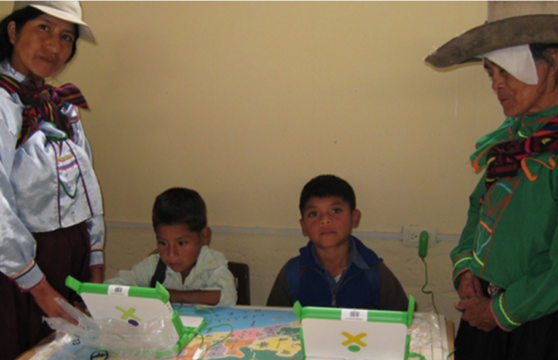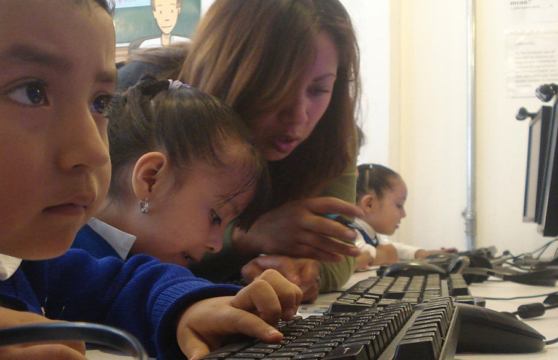
To Guide or Not To Guide Technology Use
Have investments in technology for Latin American public schools produced the expected results on student learning?
Brazil is facing an economic and political crisis. The country has only recently begun to emerge from the longest recession in its history, and corruption scandals have continued to rock the upper echelons of Brazilian politics, implicating scores of high-profile individuals and revealing troubling (and at times, unlawful) ties between the public and private sector. In spite of this uncertainty, Brazilian app-based startups like Cataki, BovControl and GuiaBolso have emerged as bright spots in the Brazilian economy as examples of dynamism and ingenuity that are often overlooked. By leveraging technology and creative thinking, these companies have been able to offer much-needed services to a diverse range of users, from urban trash collectors to rural cattle farmers. By pioneering a new way of doing business in Brazil, these startups are challenging long-standing bureaucratic practices that have hampered innovation in the past.
In São Paulo, the majority of recyclable materials are collected by catadores, individuals who sort through waste and collect recyclables to resell to recycling centers. The catadores provide a vital service, ensuring that recyclable materials do not end up in landfills. However, their work is often low-paying and uncertain. A new app called Cataki is looking to change this. The app, operating along similar principles as ride-sharing services, allows individuals to indicate what type of waste needs discarding and where they would like to discard it. App users are then able to see nearby catadores, who appear as purple cart icons on a map and come to collect the waste. While Cataki is still in its developmental stages, it provides a dual benefit – besides offering greater job stability for catadores, it also encourages residents to properly dispose of their waste by simplifying the process.
BovControl is another unique app that aims to provide cattle farmers with data that can improve their output. The app allows farmers to automatically collect data on their animals through electronic ear tags, collars, scales, and other twenty-first century tools. Farmers can then use the information to make both short- and long-term data-driven decisions. BovControl also facilitates the export of meat while cutting down on bureaucratic red tape. By allowing meat and dairy certifiers to access the collected data, farmers are able to get approval for their orders more quickly. While dairy farming and big data may not seem like the most obvious partnership, in a country where there are more cows than people, an app like BovControl brings app-based innovation to a vital industry.
GuiaBolso, Brazil’s top personal finance app, hopes to cultivate a sense of financial independence in working- and middle-class Brazilians. Between 2002 and 2012, Brazil experienced major economic growth, which helped to shift millions of Brazilians from poverty into the working class. As wages rose, more individuals took out loans and opened accounts. A lack of financial education, however, caused many to default when they could not pay back interest rates. GuiaBolso, now with 3.5 million users, allows individuals to track their expenses, set financial goals, and monitor any issues with their taxes. By simplifying and centralizing financial information for its users, GuiaBolso helps consumers make more informed choices about their money. Given today’s economic uncertainty, a tool like GuiaBolso offers users a greater sense of confidence and allows them to better plan for the future.
Startups allow entrepreneurs to navigate around the unwieldy Brazilian bureaucracy, which at times, hinders innovation. Out of 190 countries on the “Ease of Doing Business” scale, Brazil ranks 125th overall. When looking at rankings for ease of starting a business, Brazil drops to 176th. With the process of opening a business taking approximately 80 days and costing over 1000 reais (approximately 300 USD), entrepreneurs are deterred by the custo Brasil, the “Brazil cost,” a phrase that refers to the increased operational expenditures associated with doing business in Brazil. However, there have been recent attempts at reform of this system. Brazil has enhanced its electronic data interchange system, reducing the time for exporting and importing goods by better facilitating documentary compliance. The country also reduced the time needed to start a business by implementing an online portal for business licenses in Rio (though, at the same time, it also shortened the hours of the business registry office). App-based startups are able to bypass some of the steps required to open a physical business, like obtaining construction permits and registering a property.
Beyond the work of individual entrepreneurs, there has been growing institutional support for startups in Brazil at both the private and public level. Recently, Google opened a venue in São Paulo as part of its “Google for Entrepreneurs” initiative, which currently has six campuses around the world. The space acts as a physical hub for startups and the creative minds behind them, allowing greater collaboration and knowledge exchange between startups. Start-Up Brasil, a federal program created by the Ministry of Science, Technology, Innovation and Communications in 2012, seeks to further bolster the technological and entrepreneurial efforts of startups by providing them with access to funding, networking events, and outside investment opportunities. Every year, there is a period during which both startup accelerators (that is, mentors and business and technology investors) and startups apply to be part of the program. Once the accelerators and startups are selected, they are paired up to work together over the course of two months. During this time, the startups have access to up to R$200,000 for research and development, and participate in a series of training and networking events. At the end of the two months, the startups have the opportunity to pitch their ideas to investors on “Demo Day.” Start-Up Brasil is an effort by the Brazilian government to boost entrepreneurial culture and provides startups with access to the mentorship and financial resources they need in order to become success stories.
Although there is still a great deal of economic uncertainty and a number of bureaucratic barriers to entrepreneurship in Brazil, it seems that startup culture is taking hold. Because startups tend to rely on smaller teams and attract attention from international investors and clients, it is possible they will be less susceptible to the corruption that has plagued Brazil’s political and economic system for decades. Moreover, there is potential for accelerated political reform as this culture takes root, as more individuals may begin to demand the government further simplify the process for registering a formal business, whether a startup or not. While startups have begun to pop up across Latin America, with 89.5 million smartphone users and a population that is 85 percent urban, Brazil is uniquely poised to serve as an incubator for this new form of entrepreneurship in Latin America. With over 4,000 member startups already registered with the Brazilian Startup Association, increasing Internet penetration, and no shortage of social challenges that could benefit from outside-of-the-box thinking, the country seems ready to capitalize on this potential.
By combining the flexibility and quick pace of the startup model with bright ideas, entrepreneurs and innovators are able to mobilize in order to help fix some of the challenges faced by everyday Brazilians. Both the public and private sector should continue to tend to this entrepreneurial fire, as it has the potential to change both the economic and social landscape of Brazil for the better.
Have investments in technology for Latin American public schools produced the expected results on student learning?
Conference on technology in Latin American schools – takeaways to maximize the use of technology to improve learning.
Mexico’s government this month approved supporting secondary legislation that will provide additional direction for the country’s energy reforms.

